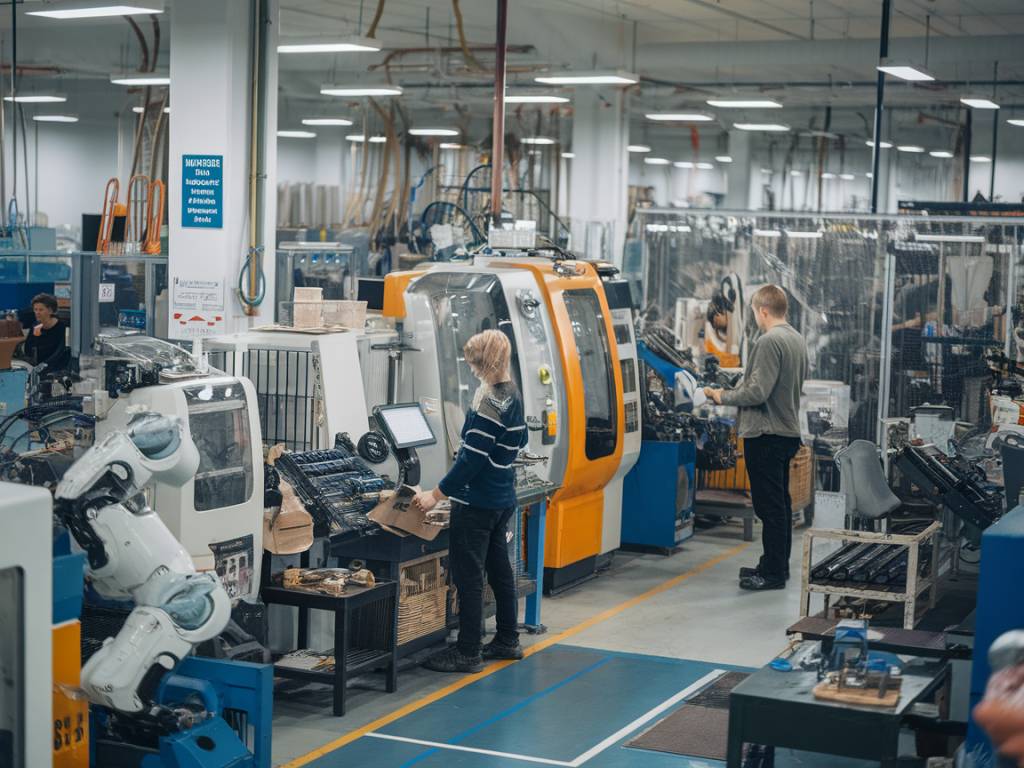The Pulse Beneath the Clicks: Understanding E-Commerce’s Silent Revolution in 2024
There’s something oddly poetic about the way we shop now. A tap, a swipe, a click—faster than a heartbeat and just as revealing. In the quiet midnight glow of a phone screen, decisions are made that ripple through warehouses, economies, and entire industries. E-commerce in the UK isn’t just growing—it’s transforming, reshaping the contours of business like water carving stone.
By 2024, we’re not merely witnessing progress; we’re navigating evolution. For businesses—whether a startup dreaming from a Soho loft or a heritage brand lingering in Yorkshire’s stoic breeze—the terrain is shifting. And knowing which way the wind blows has never been more vital.
The UK E-Commerce Landscape: A Shapeshifter in Full Bloom
Let’s talk numbers. The UK’s e-commerce sector is projected to reach over £150 billion in sales this year, continuing its dominance across European markets. But behind that impressive figure lies something less visible: a field undergoing quiet, constant adaptation.
This isn’t just about convenience or speed. It’s about soul. British consumers are evolving and so are their expectations. From ethical sourcing to seamless returns, from TikTok-fueled microtrends to AI-driven personalization—the new frontier is as much emotional as it is logistical.
And that means the old rules? They’re not being rewritten. They’re being reimagined entirely.
The Emotional Algorithm: Understanding the 2024 Consumer
Spend five minutes reading product reviews and you’ll realise quickly—it’s not the product that people are really rating, it’s the experience. In 2024, British shoppers demand meaning. They’re driven by purpose as much as price, empathy as much as efficiency.
- Sustainability-first shopping: Packaging that whispers care, supply chains that echo transparency—these aren’t trends, they’re table stakes.
- Hyper-personalisation: Emails that feel like letters from friends, product recommendations that seem eerily telepathic—all thanks to AI and machine learning, seamlessly integrated behind the scenes.
- Social commerce: Instagram isn’t just a gallery anymore. It’s a marketplace in motion, a blend of aspiration and action where the ‘buy now’ button carries the weight of influence and identity.
If your business isn’t aligning with the emotional mechanics of its audience, you’re not just missing sales. You’re missing trust.
Speed, Still King – But It’s Also Got a Heart Now
The expectation for next-day or even same-day delivery isn’t going anywhere. But the heart of logistics is softening. Delivery partners are being chosen not just for their efficiency but for their values. Electric vans, carbon offsetting, local courier collectives—these choices matter.
2024’s consumer asks, “Who delivered this package?” not out of annoyance, but out of curiosity. The story of the journey has become part of the product itself. Businesses that ignore this are whispering into a storm.
The Role of AI and Automation: Not Just Efficiency, But Empathy at Scale
Yes, AI is categorising, pricing, forecasting. It’s doing those things faster and more accurately than any human ever could. But in e-commerce’s new skin, its deeper role is less about logic and more about language.
Chatbots now speak with nuance. Virtual stylists recommend with flair. Inventory systems nudge with intuition. This isn’t just tech—it’s theatrics. It’s data learning to dance.
Businesses need to stop fearing the robot uprising and start understanding how machine learning can become their most empathetic employee.
Small Brands, Big Moves: How the Independents Are Redefining the Game
There’s a bakery in Brighton that sells custom scones based on your name’s syllables—curious? It went viral. A vintage seller in Manchester packs every order with a handwritten poem. These stories are not exceptions; they’re indicators.
In a landscape dominated by Amazonian giants, small UK businesses aren’t merely surviving—they’re shaping the emotional identity of e-commerce. Their weapon? Storytelling.
Whether it’s through a quirky website, a founders’ diary blog, or a thank-you video slipped into a parcel, independent e-tailers are proving that personality scales in ways profits don’t always explain. And their fans? They convert, they return, they advocate.
Challenges in the Shadows: What Businesses Must Confront
Yet, every paradise has its thorns. The back-end of e-commerce in 2024 is juggling increasingly complex logistics, tightening data regulations, and the echoing roar of competition. Here are a few critical pain points that refuse to be romanticised:
- Data privacy laws tightening: With post-Brexit regulatory shifts and evolving digital privacy frameworks (hello, UK GDPR), businesses must walk the line between personalised service and intrusive surveillance.
- Saturated marketplaces: Being seen is costing more. Paid ads are more expensive; organic reach isn’t guaranteed. SEO has become a long game of patience and precision.
- Customer retention over acquisition: It’s no longer about who can shout the loudest, but who can whisper the longest. Loyalty programs, subscription models, and meaningful post-sale engagement are the true battlegrounds of growth.
What UK Businesses Should Be Doing—Now
If you’re a business looking to ride this wave instead of being swept under it, 2024 demands a few deliberate pivots. Here’s what’s rising to the top of the “must-do” list:
- Invest in Headless Commerce: Flexibility across channels is not optional. Whether it’s your website, TikTok shop, or voice assistant interface—your tech stack needs to be modular and agile.
- Prioritise user experience like never before: From frictionless checkouts to real-time stock updates, your platform should feel less like a maze and more like a melody.
- Embed sustainability into the DNA: Not just in your “about” page, but in your operations—your front page, your packaging, your policies. Greenwashing will be spotted and called out in a heartbeat.
- Go niche, go deep: Massive reach is out; meaningful relevance is in. Brands that understand their tribe and speak directly to them will outlast those chasing everyone.
So, Where Do We Go From Here?
Perhaps e-commerce isn’t about commerce at all. Not entirely. Maybe it’s an invitation—one digital transaction at a time—for businesses to be more human, more imaginative, more responsive to a world that refuses to stand still.
In the UK of 2024, to thrive in e-commerce is to listen with your algorithms, to serve with authenticity, and to sell with empathy. The digital storefront is no longer just a shop—it’s a stage.
And your customer? They’re waiting in the wings, script in hand, hoping to see themselves in the story you choose to tell.
Whether you’re an entrepreneur sketching wireframes on a napkin or a seasoned retailer recalibrating your presence, know this: the tools are here. The time is now. And e-commerce? It’s no longer just a future to prepare for—it’s a narrative in which we’re all already cast.




